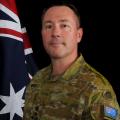There are some excellent ‘command reflections’ available to new COs to prepare for their assumption of command. As I approach the end of my tenure as a formation commander, I thought I would provide a brief insight into my expectations of unit commanders within a combat Brigade.
Know your job. Brigade commanders will expect that you are the foremost expert in your field within the formation. You and your team will be the key BOS input into the way we build combined arms teams.
Understand your warfighting mission. Tactical excellence is our core reason for existence. Your role is to develop the commanders and teams to win the next fight. Field training, simulation and military history focused PME should always be at the forefront of your thinking. Governance is important, but your commander values strong, cohesive, well-drilled combined arms teams.
Train to fight and fight to train. There are many distractions and friction points that will seek to undermine your ability to train for conflict. Fight through these and prioritise individual and collective training.
See the bigger picture, but act locally. Don’t be SO1 (insert specialisation: Infantry/Armour/Logistics/Engineers/Artillery/Signals, etc). You have been selected to command. Absolutely contribute to professional development discussions across Army, actively engage with Headquarters staffs on key issues, but always remember you’re there to lead your teams first and foremost. You’ll be back on a headquarters staff before you know it.
Play the cards you are dealt. It would be easy if we could all pick and choose our teams. However, leaders should work to get the very best out of the people they have and build their own great teams.
Be collegiate. Work with your fellow COs and the Headquarters staff to achieve mutually beneficial combined arms training outcomes. Appreciate that you will have to compromise at times.
Trust is the coin of the realm. Get to know your Commander – they want to get to know you and develop the trusted relationship vital for mission command on the battlefield.
Understand intent – and question where required. Don’t fall into the trap of hearing what you want to hear from Headquarters. Ensure you align with the overall plan.
That said, ‘Better to reign in stallions than to have to flog donkeys’. Aggressively pursue your areas of passion, and (respectfully) challenge your commander where you feel strongly. This makes us all better.
Get the Commander out to see your training. The Commander is responsible for developing you and training Combat Team commanders (two down). Give your Commander opportunities to come out and see your OCs in action and remember, this is likely the last time your Commander will be able to get involved in training so give them the opportunity to get out of the HQ.
If in doubt, speak to the Commander. Remember the direct chain of command is from you to the Commander. If there is an issue or friction you cannot resolve through your teams, you and the Commander will be able to resolve it with a conversation.
You are a steward. Success in command is passing the torch burning a little more brightly for your successor. Your legacy will be the people you have influenced and developed. They will remember the investment you make in them that sets them up for battlefield success.









